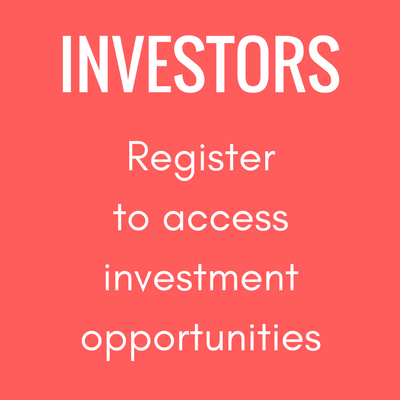This guest post comes to you from our friend Rajeev Gupta, investor and entrepreneur. Rajeev is Partner and Founder of cross-over investment fund Alium Capital Management which has backed many great Australian Startups (including HealthEngine and Unlockd who have topped the Techboard Ranking). In this post Rajeev shares his wisdom and experience from sitting on both sides of the table. Rajeev has also recently joined Techboard’s NSW Panel of Experts.
Techboard welcomes guest posts of interest or relevance to its audience, particularly related to the theme of investment (from both the perspective of investor and investee company). If you are interested in contributing please get in touch.
I was once a Tech Entrepreneur. The journey was often challenging, occasionally depressing, and all too exhilarating. Most importantly, it taught me several lessons about tactical business building, key facets to building a successful product, hiring the right colleagues, and was an insight into my own strengths and weaknesses.
My foray into start-up/hard-up land was after a relatively successful career in technology investment banking in Asia and the US. I was confident I was well equipped to build a technology start-up that would become a unicorn. I built a start up for 4 years. Starting from a kitchen table to 4 offices, 30 staff and many power users. It was a life lesson for me, everyday. I have taken those learnings and now apply them in our investment fund. We meet circa 20-25 companies every week. Everyone is the best. They all have a massive Total Addressable Market. They are different. They solve a unique problem. They will be a unicorn. They want money, our investor money.
I apply 8 key lessons from my start-up experience which assists me in judging companies, products and people when we invest today. These form the foundations of our investment thesis.
1. Have a competitive advantage
You must have some specialization in your product or service area. Don’t be on a mission to just build a start up, get funding, seek notoriety. If you are in the AI arena, you must have a quantitative background, otherwise future developments will be difficult to adapt to. A “B-“ in maths at school suggests otherwise. I have met many, many companies that are run by a Founder that is leading a Technology product, but they have no idea about their architecture or stack. They market damn well, however. If the product scales, how will the Tech move in unison? We are very cautious in supporting Tech businesses that are run by non-technical founders. Consider this: Larry Page (Google) – MSc in Computer Science. Jeff Bezos (Amazon) BS in Computer Science. Mark Benioff (Salesforce) BSc. Mark Zuckerberg (Facebook) B.Sc. Travis Kalanick (Uber) Bachelors in Comp Sc. See a pattern?
2. People first, people forever
Everyone wants to work with people that are smart, people that are cool, people that are driven. However, what about effective communicators, technical competence, honesty, empathy, thought leadership and inspiration? You don’t need to build reams of people. You don’t need empires and onerous structures. You must work with colleagues that feel your joy, your pain, your product. We had mobile apps, yet we had staff that refused to give up their blackberry. They were smart and cool. However, they never used the product they were building outside of the office. These people were salary hungry. They were a mistake to hire. There is no substitute for living and breathing your product. Be passionate, hire with passion, hire those that are passionate. Your start up journey is lonely if you are surrounded by ‘fillers.’ We seek founders that have hired people that are mini-founders.
3. Build and don’t launch too early
They say fail, fail fast. Iterate. Pivot. I have learnt the best businesses start with the core idea and build upon that. There are moments to meander in the future. There must be a core product offering. It must work. It must be liked. Go to market too early and you risk failure and disappointment. Plan your product. Plan your strategy. Planning doesn’t cost you, a failed product does. I meet businesses that raise money early in their business journey that are half-baked. Because their ability to execute, or the concept itself is suffering from ingestion, they waste money and come back to raise more money to re-architect, pivot or market. I refuse to invest in business that smell of pivot and lack of clarity and conviction.
4. Ask for help, but make decisions yourself
Conviction is everything. As the founder you need to set the pace, the direction, the tone of the product. It is useful to have thought leaders in the team, but the founder must be in control. The message about the business must be coherent and consistent both internally and externally. I started our business and internally some people targeted a different audience. People internally were confused. When we spoke to external parties we seemed like a zebra. When we had a single message, we started to win. A quick decision is generally the best decision. As a Founder you must set the vision and the execution plan. Work with colleagues and stakeholders to build out the plan. It is critical to not out-source key ideas, features, the roadmap. There will always be the nay-sayers. If you are as good as you say, you must own and drive direction.
5. Be resourceful
You must be creative and innovative in what you do. There is often no defined path for your product/business success. For instance it is key to find customers and users in methodical yet non-standard ways. Waving a flag is often hopeless. Show value in what you are offering. The rule we deployed early was: own 100 people. Make them love your product. Cater to them. Your best marketing channel is an existing customer. In my journey, we met a person that ran a not-for-profit organization that had an almost 30k user base in APAC. They told me what they were looking for. I thought we were potentially building to her audience set. We listened to her, we created features for her. Within 12 months we almost had her entire audience on and they were engaged. We pooled our resources to win them. We recently invested in a business that was considering how to market. They were considering advertising on buses. The Founders would go to bus-stops in the morning and the evening to see which routes would be productive for them. They were analyzing the demographics. That is laboursome but potentially gets them the return they desired.
6. Live & breathe your business
In the first few weeks of our start-up I had cups with our logo made for everyone in the office. Some used them, some broke them, some ignored them. It bothered me that there was a lack of passion and interest to embrace the business and the brand. As we cycled through people, and as we added more (and better) colleagues it was terrific to see people wear the t-shirts and the caps. Our company’s colors were orange. My watch was orange, my shirt was orange, and somewhere in the back streets of Bangkok I even found orange shoes. Everyone knew I liked orange. I was always promoting our brand. We recently invested in a business, and it was so encouraging to see the whole staff wearing that company’s t-shirt at one of their events. Everyone looked proud.
7. Social Responsibility
We take it for granted that we are mobile, we travel, we consume. All of these have an impact on the environment. It is refreshing to meet new businesses that think the same. As part of our investment approach, we consider the ethical, social and environmental impact of each investment opportunity. You should too.
8. Do not think your business is a moat. Be paranoid, everyday
Some companies have no obvious ‘moat’ around their businesses to protect them from competition, yet they succeed nonetheless – think Snapchat tapping Facebook’s arena. Yet other companies are gifted a strong moat and then see it fade away. Think Yahoo! In my many years of investing experience I have learnt to look for businesses that are successful without, or perhaps despite, a strong moat. As Andy Groves, former CEO of Intel, once said, “Success breeds complacency and complacency breeds failure. Only the paranoid survive.”
Rajeev Gupta is an investor and entrepreneur. He is Partner and Founder of Alium Capital Management, a cross-over investment fund. He also founded Geckolife in Singapore, a collaboration platform for groups and individuals. Before founding Geckolife he had a career in technology investment banking.




